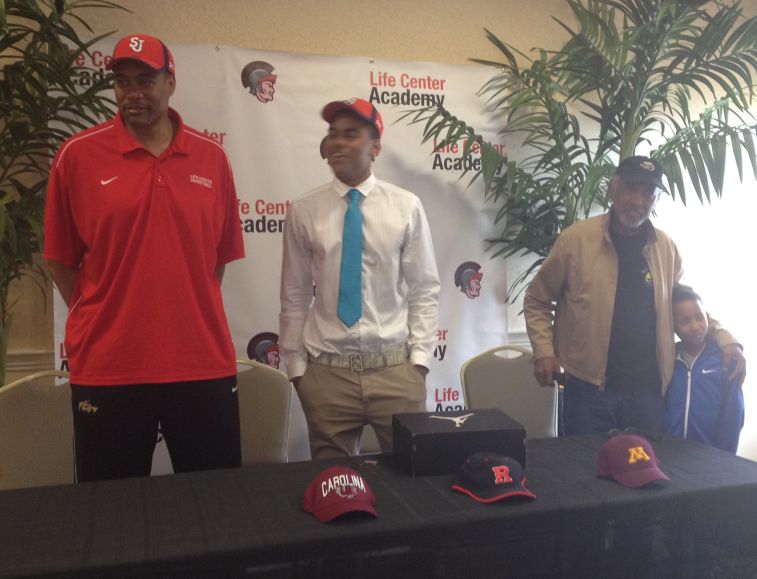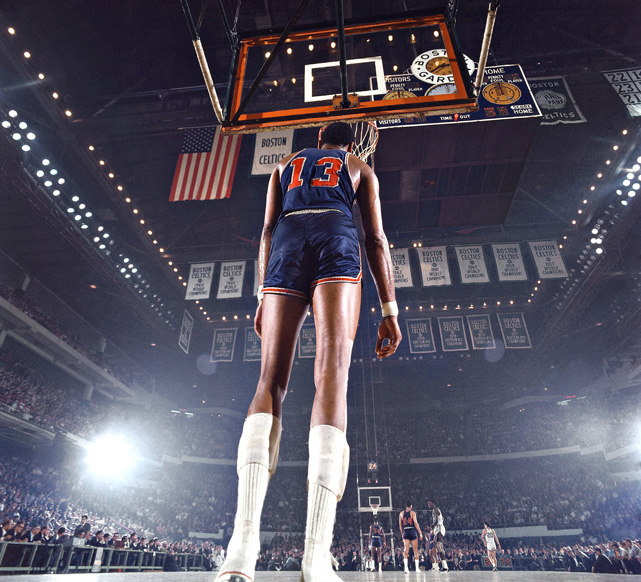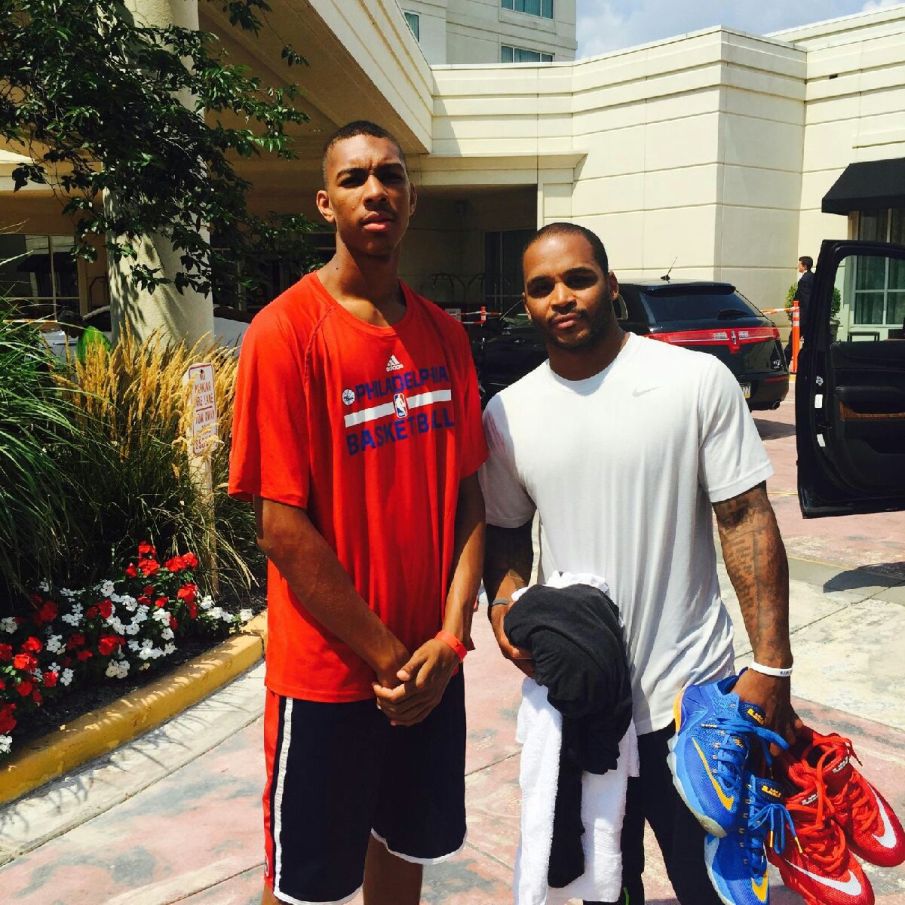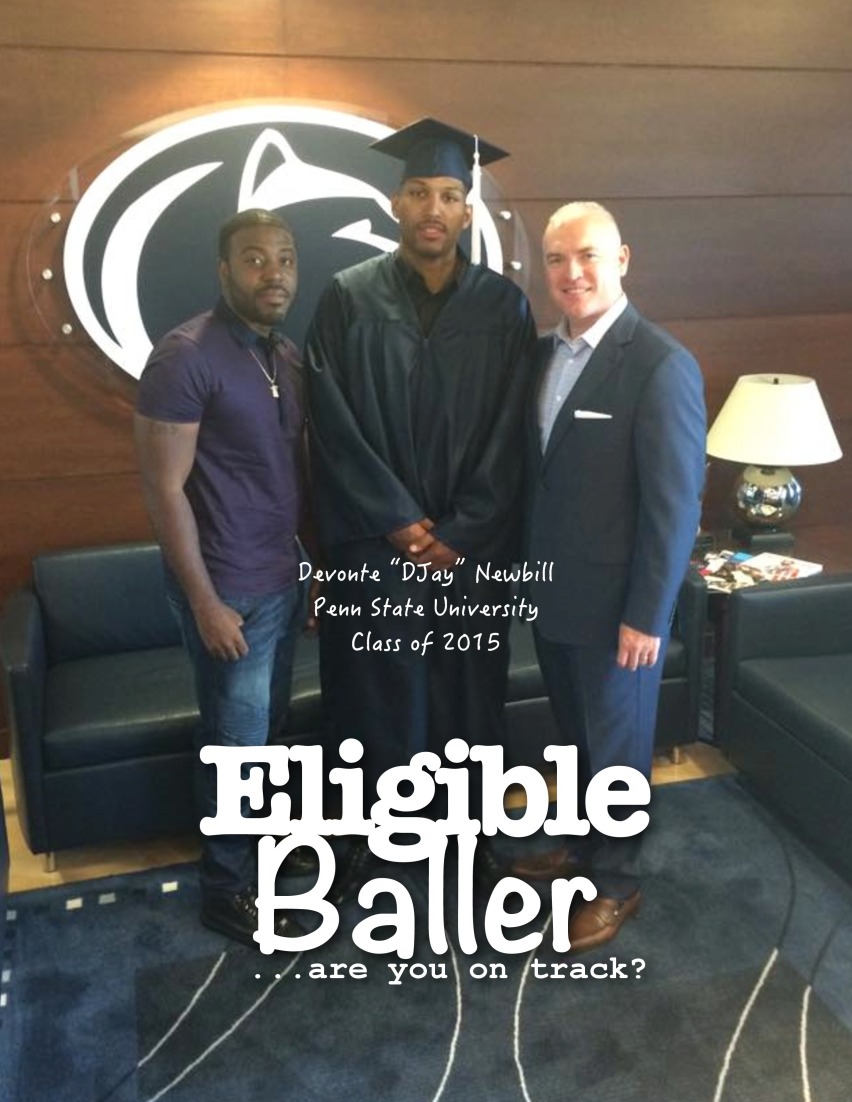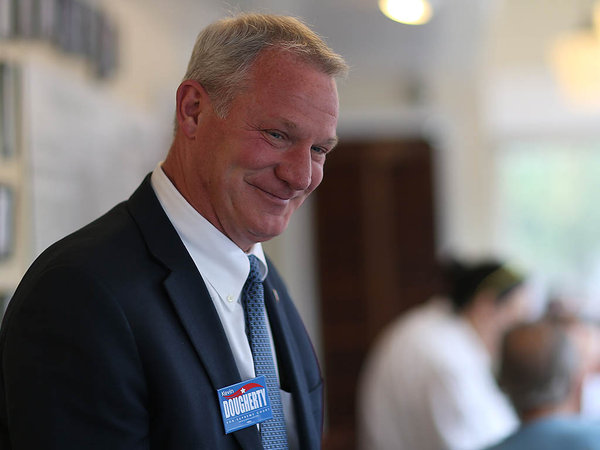What the fuck? Why?
Why did he commit there? Why didn’t he choose us? Why didn’t he come to our school?
Our academics are better! We win more! We produce more pros! Shit makes no sense…
Many resort to knee-jerk accusations that the kid was “bought off” to explain the decision… They had to cheat… Why else would he choose them over us?
Every year around this time, passionate alums and casual observers rack their brains trying to make sense of decisions made by 18 and 19 year old elite Black male student-athletes. Indeed, an entire multi-million dollar industry has emerged dedicated solely to tracking the college selection processes of elite predominantly Black male student-athletes. Scout and Rivals are two of the biggest media enterprises dedicated to in-depth coverage this annual race to sign the very best scholastic ballers. Rivals was purchased for $100 million by Yahoo in 2007. Scout generates over $100 million in annual revenues.
Malik Ellison committing to St. Johns
Despite intensive media coverage, very little thought is given to the actual decision-making process itself. Core questions at the center of the ‘mainstream’ dialogue are fairly easy to delineate: Where will Black male athletes sell their athletic labor in return for an athletic scholarship? Which predominantly White NCAA Division I institution will profit generously in return?
The Black Cager is dedicated to going a little deeper than that. I want to foster understanding. So… How can we begin to make sense of these “decisions” made by thousands of young Black men entering collegiate athletics every year?
I want to provide a basic framework for understanding the all too often overlooked decision-making process. While the analytical focus is on urban Black male basketball players, the framework can be applied across racial and ethnic backgrounds as well as geographic settings. Many white ballers from the cornfields of the mid-west face the same circumstances.
My basic hypothesis is that predominantly white college sports fans, alums, writers and even coaches assess the decision-making process from a purely “rational” point of view. In doing so, they consistently fail to understand and appreciate the limits or “bounds” the student-athlete operates under. As a result, the observers are usually confused and unable to comprehend why decisions are made. This confusion leads many to make unfounded and unwarranted accusations about the character and integrity of the process, the student-athletes and their families.
What are the limits and constraints? What are the “bounds” imposed upon student-athletes making college decisions? Elite Black male student-athletes facing college decisions have to work under three unavoidable constraints.
- They only have access to limited, often unreliable, information regarding possible alternatives and their consequences,
- The human mind has only limited capacity to evaluate and process the information that is available. And,
- only a limited amount of time is available to make a decision.
Therefore even student-athletes intent on making rational choices are bound to make satisficing (rather than maximizing or optimizing) decisions in complex recruiting situations. This vital fact is overlooked by disappointed and frustrated supporters of programs that lose recruiting battles. Moreover, it is not addressed by ‘mainstream’ sportswriters and analysts trying to explain outcomes to their targeted audiences.
All they know is, to them, shit don’t make no sense… As a result, message boards are flooded with nasty, vile and even racist attacks on young men that chose a program other than theirs.
Tamyra ‘Mookie’ Laws committing to Holy Family University
Fans fail to understand that these limits (bounds) on rationality make it nearly impossible for student-athletes and their families to consider every contingency, necessitating reliance on advisers, ‘handlers’ or even agents operating behind the scenes.
Black male student-athletes, like everyone else, are to some extent rational beings in that they will try to logically understand things and make sensible choices. This is rightfully assumed by most observers. Collegiate sports fans, alums and college coaches assume that student-athletes have preferences among the colleges offering scholarships that allow them to state which option they prefer.
From a purely rational perspective, these preferences are assumed to be complete (the student-athlete can always say which of two college programs they consider preferable or that neither is preferred to the other) and transitive (if college A is preferred over college B and college B is preferred over college C, then A is preferred over C).
However, observers make the mistake of assuming student-athletes take account of ALL available information like academic reputations, graduation rates and probabilities of events like winning conference championships, appearing in the NCAA tournament and being drafted by an NBA team. It is further assumed that a student-athlete weighs the potential costs and benefits in determining preferences, and acts consistently in choosing the self-determined best choice of action.
That’s how most causal observers think the process works. But…. That’s not how it actually goes down…
For elite Black male student-athletes the college recruitment process is extremely daunting and complex, and they do not have the capacity to understand everything. As noted earlier, they only have access to limited, often unreliable, information regarding possible alternatives and their consequences. Yes… college coaches are able to make an unlimited amount of phone calls and text messages to recruits. Of course, they do everything they can to get their message across to the young men.
For many student-athletes this quickly results in hundreds of calls and/or text messages per day. As a result, coaches begin to sound like Charlie Brown’s teacher, “whaaan, whann, whann, whann, whann…”
Coaches understand this, even if fans don’t, so they rely on the development of intermediaries like AAU/grassroots coaches, HS coaches, family members, friends, girlfriends, etc. to deliver messages to student-athletes. Unfortunately, in many instances, the “interests” of the intermediaries supersede the interests of the student-athletes. “If he comes with us, we’ll take care of you or your AAU/HS program” is the message the intermediaries hear. In this way, information reaching the student-athlete becomes limited and unreliable regarding possible alternatives and their consequences.
At this point, the possibility of a truly ‘rational’ outcome has been compromised. The student-athlete is receiving skewed information.
Rakeem Christmas Graduated from Syracuse University in 3 years
Further complicating the process is the fact that the human mind has only limited capacity to evaluate and process the information that is available. This is especially so for urban Black male student-athletes. The athletes and their family members very often do not possess the intellectual tools required to adequately understand the process as it unfolds.
It’s really bad… Really, really bad…
On August 24, 2015, the Philadelphia Inquirer reported that “nearly half of all adults in [Philadelphia] – more than half a million men and women – lack the basic skills necessary to qualify for postsecondary training or hold jobs that permit them to support a family. Many function below eighth-grade levels.”
How are parents and grandparents that can’t read supposed to sort through the labyrinth of NCAA regulations and appropriately weigh the options available to them? They can’t….
The student-athletes themselves may be in an even worse position. A recent study by the Schott Foundation for Public Education found that the four-year HS graduation rate for Black males in many of America’s urban areas was profoundly abysmal. Detroit, MI (23%) has the lowest Black male graduation rate in the country (in Detroit only 13% of White males graduate from high school within a four year period), followed by Philadelphia, PA (26%), Clark County, NV (27%), Pinellas County, FL (28%), Cleveland, OH (28%), New York, NY (28%), Chatham County, GA (28%), Richmond County, GA (29%), Duvall County, FL (29%), and Norfolk, VA (31%). For the 26% that remain engaged in school, in 2014, 42 percent of students met the reading standards bar set by the state on the Pennsylvania System of School Assessment, down from 42.3 percent. In math, 45.2 percent met standards, down from 46.9 percent.
This is where college fans and alums become confused. They wonder: Why did he choose a school that hasn’t been to the tournament in 10 years? Why did he choose a program that doesn’t have as many NBA players as ours?
In choosing college destinations, in can be argued that there are no optimal decisions, but choices that are in some sense locally optimal at best. The implications of these decisions are based on bounded rationality, which is senseless to observers applying rational logic, but completely sensible for the student-athlete making the decision.
Elite Black male student-athletes do exactly what makes the most sense to them, in the context of the moment, with their current understanding. If you are a white college educated-male with college educated parents that were in a position to pay for your education you likely have no frame of reference for understanding this process.
It ain’t personal… Cut the kids a break…
